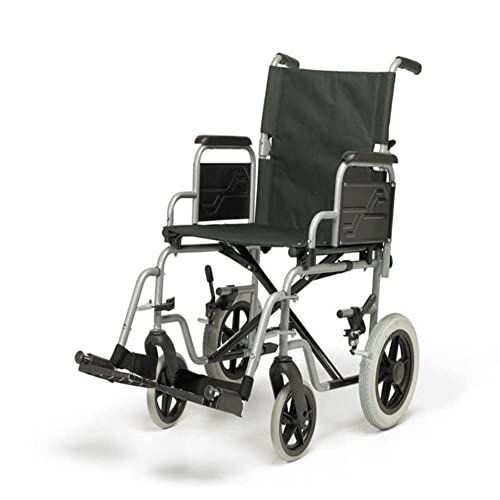
Exploring Disability Scooters for Sale Near Me: A Comprehensive Guide
In the contemporary world, mobility help have ended up being increasingly advanced and available, boosting the lifestyle for individuals with impairments. Amongst these help, disability scooters stand apart as a flexible and effective service, using flexibility and self-reliance to those who might discover standard walking aids limiting. This article explores the world of disability scooters, exploring how they work, the benefits they supply, and where to find them for sale near you.
What Are Disability Scooters?
Disability scooters, also called mobility scooters or electric scooters, are motorized vehicles developed to assist people with mobility problems. These scooters are typically geared up with a seat, handlebars for steering, and a variety of functions that boost convenience and security. They are powered by rechargeable batteries and can be utilized both indoors and outdoors, depending on the model.
Types of Disability Scooters
Three-Wheeled Scooters
- Pros: More maneuverable in tight spaces, lighter and typically simpler to transport.
- Cons: Less steady on uneven surface areas, may feel less safe and secure for some users.
Four-Wheeled Scooters
- Pros: Greater stability and balance, better for outside usage, especially on rough surface.
- Cons: Less maneuverable in tight areas, generally much heavier and more difficult to transport.
Travel Scooters
- Pros: Designed for simple disassembly, making them ideal for travel.
- Cons: May have a much shorter variety and lower speed compared to full-sized models.
Sturdy Scooters
- Pros: Built to support higher weight capabilities, often more long lasting and tough.
- Cons: Heavier and less portable, may need more upkeep.
Standing Scooters
- Pros: Provide an alternative for users who prefer or require to stand.
- Cons: Less typical, may not be as comfy for long-lasting use.
Advantages of Disability Scooters
Enhanced Mobility
- Disability scooters enable users to travel longer distances and browse numerous environments with ease, from grocery stores to outdoor parks.
Increased Independence
- By minimizing the requirement for assistance, these scooters empower users to preserve their independence and perform daily activities more easily.
Improved Quality of Life
- Scooters can considerably improve social and recreational activities, allowing users to take part in neighborhood occasions and keep a more active lifestyle.
Cost-efficient
- Compared to other mobility aids like power wheelchairs, scooters are typically more inexpensive and have lower maintenance costs.
Personalized
- Many scooters featured choices for customization, including adjustable seats, speed settings, and extra safety functions.
Where to Find Disability Scooters for Sale Near Me
When trying to find disability scooters for sale, there are a number of choices offered to ensure you find the right suitable for your needs.
Local Mobility Aid Stores
- Pros: Opportunity to test drive and see the scooters in individual, knowledgeable staff for tailored suggestions.
- Cons: Limited choice compared to online stores, may be more expensive due to overhead expenses.
Online Retailers
- Pros: Wide range of models and brand names, typically more competitive prices, benefit of shopping from home.
- Cons: Can not check drive before purchasing, potential shipping expenses and hold-ups.
Specialized Dealers
- Pros: Specialized in mobility help, often provide extended guarantees and financing alternatives.
- Cons: May be more pricey, fewer physical locations.
Second-Hand Markets
- Pros: Affordable options, opportunity to check and evaluate the scooter before buying.
- Cons: Limited warranty, may need maintenance or repair work.
What to Consider When Buying a Disability Scooter
User Needs and Abilities
- Physical Condition: Consider the user's strength, dexterity, and stability.
- Lifestyle: Think about where the scooter will be used most frequently (inside your home, outdoors, both).
Scooter Features
- Variety and Battery Life: Ensure the scooter can manage the ranges you need to take a trip.
- Speed and Maneuverability: Choose a scooter that matches your speed preferences and the areas you navigate.
- Weight Capacity: Verify that the scooter can support the user's weight.
- Storage and Transport: If you require to transport the scooter, look for designs that are lightweight or easy to disassemble.
Safety and Comfort
- Braking System: Check for dependable and responsive brakes.
- Seating: Opt for a comfortable and adjustable seat.
- Lighting and Accessories: Consider features like headlights, turn signals, and baskets for included convenience.
Budget plan and Financing
- Preliminary Cost: Compare prices from different sellers.
- Upkeep Costs: Factor in the expense of batteries, repair work, and regular maintenance.
- Financing Options: Some dealers use funding or lease-to-own programs.
Warranty and Support
- Warranty: Look for a thorough guarantee that covers both parts and labor.
- Consumer Support: Ensure the merchant uses trustworthy customer support and assistance.
FAQs About Disability Scooters
Q: Are disability scooters for sale near me scooters covered by insurance?
- A: Many insurance policies, including Medicare, can cover a portion of the expense of a disability scooter. Nevertheless, protection varies, so it's important to talk to your company for particular information and requirements.
Q: How often do I need to charge the battery?
- A: The frequency of battery charging depends on the model and use. Generally, you should charge the battery after each usage or at least when a week if the scooter is not utilized day-to-day.
Q: Can I use a disability scooter on mass transit?
- A: Yes, numerous disability scooters are created to be transportable and can be used on public transport, such as buses and trains. However, it's an excellent concept to check the particular guidelines and regulations of your regional transit authority.
Q: Are there any age restrictions for using disability scooters?
- A: There are no rigorous age limitations, but users need to have the ability to run the scooter securely. Many scooters are created for older adults, but they can be utilized by anyone who requires help with mobility.
Q: Can I customize a disability scooter to fit my specific needs?
- A: Many scooters offer customization options, such as adjustable seats and speed settings. For more substantial adjustments, it's best to talk to an expert mobility help supplier.
Tips for Buying a Disability Scooter
Research study Thoroughly
- Read Reviews: Look for reviews from other users to get a sense of the scooter's efficiency and dependability.
- Compare Models: Consider different designs and brands to discover the one that best satisfies your requirements.
Test Drive Before Buying
- If possible, test drive the scooter to guarantee it feels comfortable and satisfies your requirements.
Ask for Professional Advice
- Seek advice from a healthcare provider or mobility help expert to get personalized recommendations.
Look For Local Incentives
- Some regional governments and companies use incentives or aids for buying disability scooters. Consult your local disability services to find out more.
Think About Future Needs
- Consider any possible modifications in your physical condition that might impact your scooter needs in the future.
Disability scooters are a valuable tool for boosting mobility and self-reliance for individuals with impairments. By considering the user's requirements, the functions of the scooter, and the available options for purchase, you can discover the best scooter to fit your way of life. Whether you're patronizing a regional shop or searching online, making the effort to research study and test drive various designs will guarantee you make a notified and advantageous choice. With the right scooter, the world becomes a more available and enjoyable location.
Additional Resources
- Mobility Aid Providers: Check regional listings for service providers concentrating on disability scooters.
- Online Reviews: Websites like Consumer Reports and mobility help forums provide comprehensive reviews and user feedback.
- Government Programs: Look into regional and national programs that provide monetary help for mobility aids.
By checking out these resources and following the ideas described in this article, you can with confidence discover and buy a disability scooter that satisfies your specific needs and enhances your every day life.








